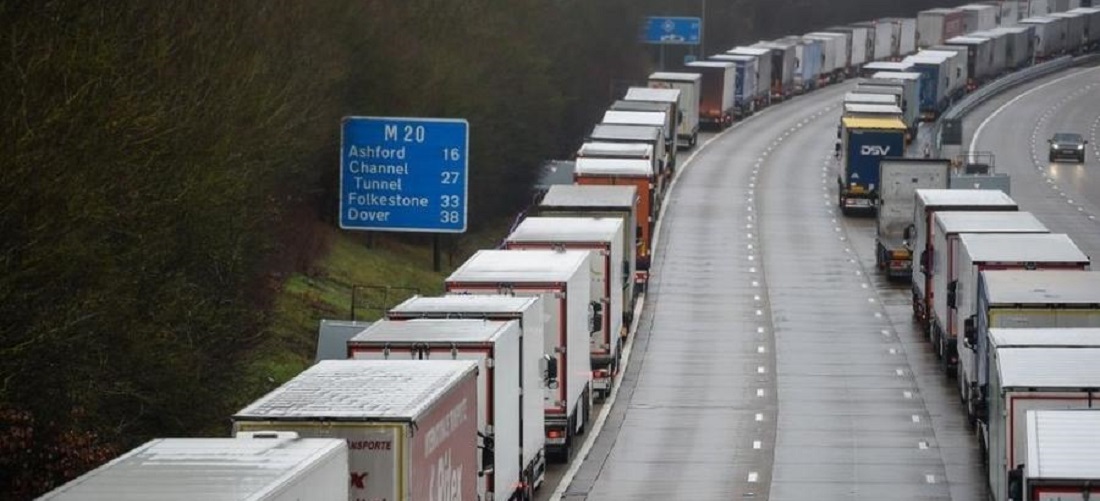
New coronavirus strain closes one of Europe’s most important trade routes
Dec, 22, 2020 Posted by Ruth HollardWeek 202052
After the United Kingdom announced the discovery of a new, highly contagious coronavirus strain, France announced the closure of its border with the country for 48 hours and blocked road, rail, air, and sea traffic between the two countries. As a result, the UK is practically isolated from Europe.
The move resulted in hundreds of trucks stuck in huge traffic jams at the port of Dover, on the south coast of England. The sudden restrictions affected one of Europe’s most important trade routes.
UK Secretary of State for Internal Affairs Priti Patel told BBC radio that about 650 trucks were lined up on the main road to Dover, while another 873 trucks were redirected to a nearby airport. However, the number of trucks stuck in the traffic seemed to be even greater.
One of the proposals to unblock the traffic jam is to conduct mass tests of covid-19 on drivers. But this solution will likely mean delays for truck drivers.
The government of British Prime Minister Boris Johnson has been struggling to agree on measures to allow the return of cargo flow – while Britons fear a shortage of food, such as fruit and cabbage.
The UK government is in negotiations with France to reach an agreement that allows freight trains to resume operations. Both London and Paris expressed the expectation that an agreement is reached as soon as possible.
English Channel
Another expected disturbance is related to the French and British sides of the English Channel. France has halted passenger traffic and is monitoring cargo traffic, imposing a far more comprehensive ban than the border closure that was introduced during the first wave of the virus in the spring (northern hemisphere spring).
The passage from the United Kingdom to France is one of the most important transport corridors in Europe, which means that food and other time-sensitive cargo may end up rotting alongside British roads in the coming days.
Even though the restrictions do not prohibit trucks from entering the UK, industry representatives warned that few companies would be willing to risk being trapped there, meaning that traffic is likely to be severely affected in both directions.
Brexit
It is worth remembering that the border disruptions occur less than two weeks before the United Kingdom severs its last member ties with the European Union, although both sides have failed to reach a trade agreement.
One of the most feared impacts of a “no-deal” Brexit is widespread disruptions along Britain’s borders – a scenario that on the 21st seemed to have materialized and that could put additional pressure on Boris Johnson, who is being criticized for his treatment of the Brexit negotiations and the coronavirus pandemic.
Sources: DW, BBC and Jornal do Comércio
-
Ports and Terminals
Aug, 15, 2019
0
Alcântara might receive Brazil’s largest multimodal port
-
Trade Regulations
Aug, 16, 2021
0
How the Taliban takeover in landlocked Afghanistan will change shipping patterns
-
Grains
Sep, 05, 2023
0
Argentina authorizes exporters to utilize 25% of dollar earnings for soy purchases
-
Grains
May, 17, 2022
0
India will allow the shipment of wheat loads awaiting customs cleareance


